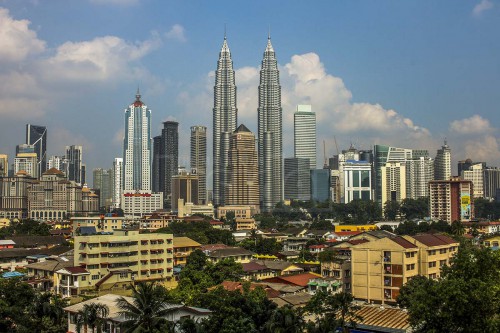It’s no secret that prime office space in the central business district of any big city is usually taken up by big multinational companies. It’s no different in Kuala Lumpur, where the ‘golden triangle’ area of KLCC and Bukit Bintang is a hotspot for expatriates from various professions and employees of oil and gas companies like Petronas, Shell, and ExxonMobil, just to name a few.
Malaysia relies heavily on the oil and gas (O&G) sector, and the O&G sector has suffered losses due to lower crude oil and commodity prices, which only partly answers the question of why the ringgit has dropped so much this year. Of course, other factors such as political headwinds, uncertainty in the federal rate hike and China’s yuan devaluation have also contributed to Malaysia’s weakened economy this year.
According to the Nielsen Global Survey of Consumer Confidence and Spending Intentions dated Nov 3, 2015, consumer confidence index in the third quarter slipped to a 10-year low of 78 percentage points. Similarly, the Malaysian Institute of Economic Research consumer sentiment index fell to a new low of 70.2 points in the third quarter this year from 71.7 the quarter before.
Ever since the Malaysian ringgit plunged more than 20% this year, there have been waves of retrenchment in the banking sector and oil and gas industry, just to name a few. In O&G companies especially, the retrenchment is part of cost-cutting measures to ensure profits stay up amid the weakened economy, not only in Malaysia but also other parts of the world.
Last week, it was reported by The Star that ExxonMobil Exploration and Production Malaysia Inc would join a list of companies that will be letting go of some prime office space in the city centre as part of cost-cutting measures. In fact, O&G companies take up 26% of top grade office space in the city. Banking sector takes the lion’s share at 33%, according to statistics by JLL Malaysia Property Research.
Therefore, by extension, not only have the businesses related to the oil and gas industry here suffered, it has also affected the property market in Kuala Lumpur, especially within the city centre where most of the high-end properties are located, and occupied by those in the sector. It’s a domino effect. With people losing their high-paying jobs in oil and gas companies, they will no longer be able to afford renting expensive high-end condominiums in the city, while those who are renting will be on the lookout for units with lower rent. This, in turn, will result in higher vacancy rates for residential and commercial properties. At the same time, owners of luxury and high-end properties will be eager to dispose of their properties, even at lower-than-market prices, while landlords prepare to rent their units at lower prices just to attract or keep tenants.
Will this also mean a decrease in property prices and rental in the KLCC office area? According to property players and judging from the launches by developers, it seems unlikely. Properties in the city centre area are usually owned by real estate investment trusts (REITs), big conglomerates, and high net worth individuals that are able to weather this sort of situation without incurring losses. Instead, they might even take this opportunity to buy up and invest in properties that have been put up for sale by individual owners.
However, there might also be other effects brought about by this scenario. More diversified companies – i.e. not from the oil and gas industry – entering the office spaces now available in the city, perhaps? While smaller firms prefer to base themselves in the outskirts of town to avoid congestion and high rental rates, the comparatively more convenient public transportation and administrative offices found in the city could well bring in more variety of businesses and industries, and give rise to more job opportunities in the city.
Looking to rent some affordable office space in Petaling Jaya? You might find some hidden gems in our Estate123.com listings!






